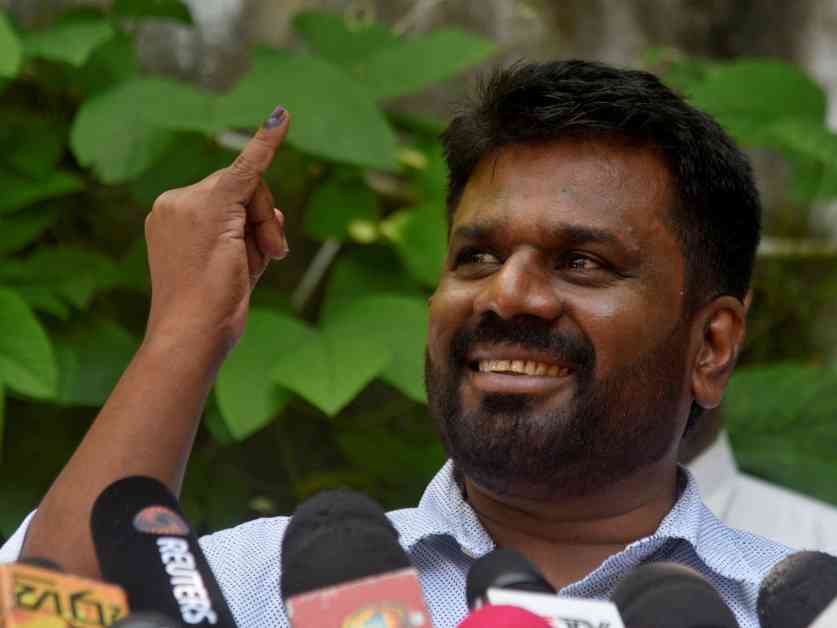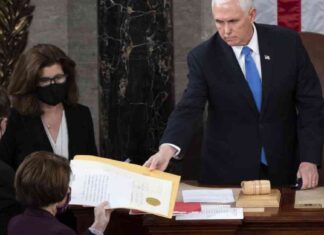Historic Round Two Counting Underway in Sri Lanka
Sri Lanka is currently witnessing a historic moment as the country’s presidential election has entered the second round of counting for the first time in its history. This unprecedented situation arose as no candidate was able to secure the mandatory 50 percent of votes in the initial election round. The political landscape of the South Asian island nation has been significantly altered due to the lingering effects of an unprecedented financial crisis that struck the country two years ago.
In a surprising turn of events, Marxist-leaning politician Anura Kumara Dissanayake has emerged as the frontrunner in the election, capturing the attention of voters who are seeking an alternative to the traditional political elite. Dissanayake managed to garner an impressive 39.5 percent of the votes, surpassing opposition leader Sajith Premadasa, who obtained 34 percent of the votes.
The Election Commission has disqualified the incumbent President Ranil Wickremesinghe along with the remaining 36 candidates, leaving Dissanayake and Premadasa as the main contenders in the second round of counting. This phase involves a meticulous examination of preferential votes cast by voters, which will be added to the total votes received by the top two candidates. Al Jazeera’s Minelle Fernandez, reporting from the capital city of Colombo, has indicated that the final result of the presidential race is expected to be announced soon.
Economic Factors Influencing the Election Outcome
President Wickremesinghe, who played a crucial role in steering the country’s fragile economic recovery following the debilitating crisis in 2022, found himself trailing in third place with a mere 17 percent of the vote. Despite his efforts to stabilize the economy after it defaulted on loans, Wickremesinghe’s failure to address the pressing cost-of-living crisis proved to be a significant factor that swayed voters away from him. Additionally, his association with the Rajapaksa family, who have been implicated in the economic turmoil, likely diminished his appeal among the electorate.
The state of the economy took center stage in the election agenda, with Dissanayake promising to implement welfare measures aimed at alleviating the hardships faced by the populace. He has been vocal in his criticism of the austerity measures imposed as part of a deal with the International Monetary Fund (IMF) to secure loans, pledging to renegotiate the terms of the agreement if elected. Dissanayake’s platform resonated with voters who are seeking tangible change and relief from economic hardships.
Dissanayake currently leads the left-leaning coalition National People’s Power, positioning himself as the candidate of change in a political landscape dominated by the traditional elite. His popularity surged following the 2022 protests that led to the ousting of then-President Gotabaya Rajapaksa and subsequent resignation, paving the way for Wickremesinghe’s presidency. Pradeep Peiris, a political scientist at the University of Colombo, remarked, “The election result clearly indicates that the revolutionary spirit witnessed in 2022 is still alive and well.”
Promises of Renegotiation and Reform
Sajith Premadasa, the 57-year-old son of the late President Ranasinghe Premadasa, also vowed to renegotiate the terms of the IMF deal, aligning himself with the growing sentiment for reform and change among voters. With approximately 75 percent of the 17 million eligible voters turning out to cast their ballots, the presidential election in Sri Lanka has captured the attention of the nation and the international community alike.
As the second round of counting unfolds, the fate of Sri Lanka’s presidency hangs in the balance, with Dissanayake and Premadasa vying for the opportunity to lead the country out of its economic turmoil and towards a more prosperous future. The outcome of this historic election will undoubtedly shape the trajectory of Sri Lanka’s political landscape and determine the path of its economic recovery in the years to come.



























